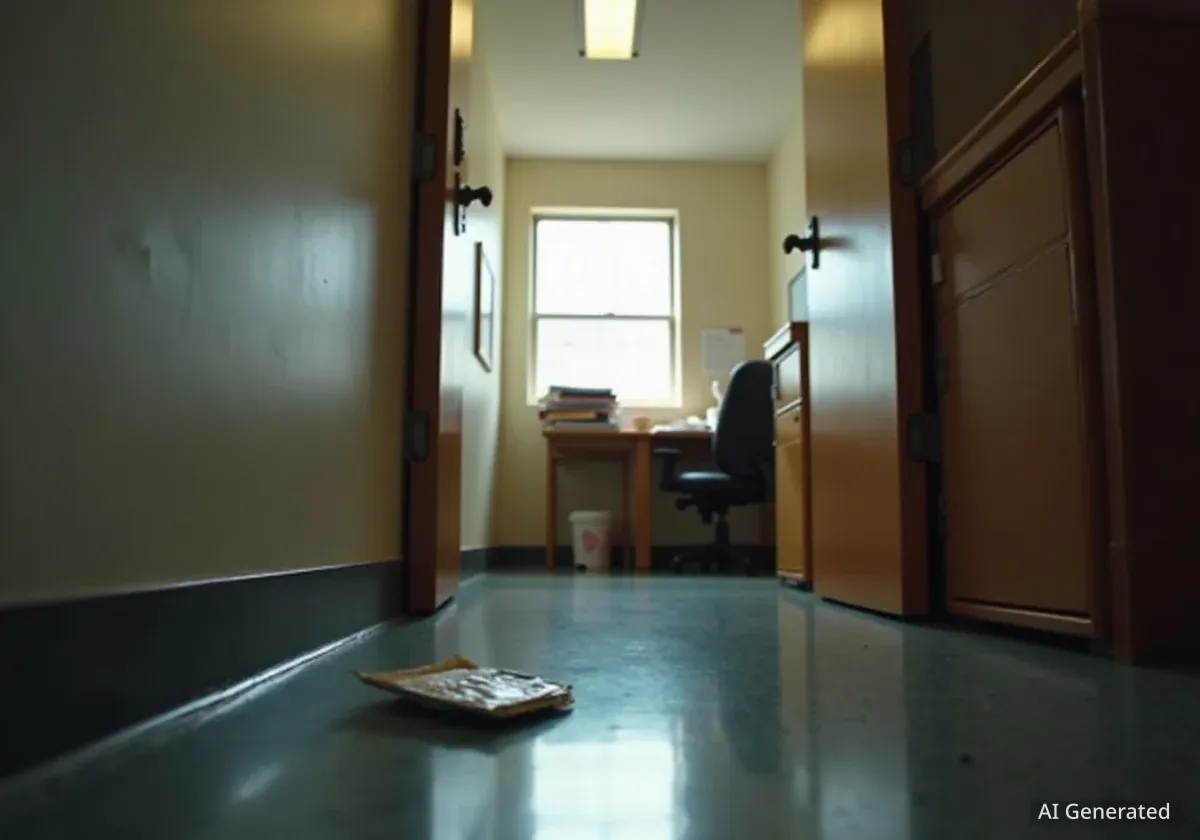A significant policy shift at a prominent college has ended the long-standing practice of undergraduate advisors directly distributing contraceptives to students in their dormitories. Advisors will now receive a limited weekly supply, a change that has prompted concerns among students about reduced accessibility to safe sex materials on campus.
The college administration has not provided a specific reason for the change, despite multiple inquiries. The new policy alters a system that students and advisors described as a convenient and effective method for promoting sexual health within residential halls.
Key Takeaways
- Undergraduate advisors will no longer conduct their previous three-times-a-week contraceptive distribution in dorms.
- Advisors will be given a limited weekly amount of condoms and lubricant to have on hand.
- Students have raised concerns that the policy change will create barriers to accessing safe sex supplies.
- The college cited continued collaboration with health centers but declined to comment on the reasons for the change, including potential budget cuts.
Details of the New Contraceptive Policy
Under the former system, undergraduate advisors, known as UGAs, regularly distributed condoms and other contraceptives directly to students in their residence halls. This practice has now been discontinued.
The new protocol limits the role of UGAs in this area. While they will still have access to some supplies, the quantity will be restricted to a weekly stipend. According to associate dean for residential life Stacey Millard, the college will continue to ensure students have options for safe sex supplies.
“We don’t comment on internal budgets, however we continue to work closely with Dick’s House, the primary source for contraceptives and the Student Wellness Center, as we always have, to ensure students have options to access some safe sex supplies residentially,” Millard stated in a written comment.
The administration did not elaborate on why the direct distribution model was eliminated or whether financial considerations played a role in the decision.
Student Concerns Focus on Accessibility
Several students and UGAs have voiced concerns that the policy change could negatively impact student health by making contraceptives harder to obtain. They argue that the convenience of in-dorm distribution was a key factor in its effectiveness.
Anahita Chowdhary ’28, a UGA for French Hall, described the previous method as “more accessible” for students. She suggested that while other sources exist, students are less likely to go out of their way to get them.
“Although free condoms are available at the Student Wellness Center, Dick’s House and in dorm common rooms, students are unlikely to leave their dorms to walk to those locations,” Chowdhary explained.
Where Condoms Are Still Available
Despite the policy change, students can still access free contraceptives at several locations on campus:
- The Student Wellness Center
- Dick’s House (the campus health service center)
- Common rooms in select residence halls, including Bissell Hall and Middle Massachusetts Hall.
Henry Brown ’29, a resident of Brown Hall, said he has had “easy” access to a basket of condoms in his common lounge. However, he noted that he was not aware of the other locations on campus where supplies were available, highlighting a potential information gap. “If UGAs provided condoms on on-nights, that would make sense,” Brown said. “Students are going to [have sex] regardless, so they might as well be safe.”
Impact in a Rural Setting and Proposed Solutions
The issue of accessibility is particularly significant given the college's rural location, where off-campus options for reproductive health care may be limited. Pamir Oral ’28, another UGA in French Hall, believes the change will disproportionately affect students who are not regularly sexually active and may not think to seek out condoms in advance.
Oral argued that the college has a “duty” to “preserve” student “well-being” by ensuring free condoms are available “at all times.” He emphasized that limited access could have serious consequences in a community with fewer external resources.
Students have also proposed alternative solutions to maintain easy access. Oral suggested that condom dispensers, like those found at the Student Wellness Center, could be installed directly in dormitory hallways. “My freshman year, I was living in Judge on the third floor, and we had a pack of condoms in the corridor,” Oral recalled. “I think it is good to have them near the dorms.”
Another student, Brody Gifford ’29, pointed out that some residence halls like Topliff Hall have vending machines that stock condoms. However, he argued that requiring payment undermines the goal of accessibility. “It’s not the correct solution,” Gifford stated.
A History of Proactive Sexual Health Education
This recent policy change contrasts with the college's historical role as a leader in campus sexual health. In 1987, during the height of the AIDS epidemic, The New York Times reported on the institution's “aggressive effort” to promote safe sex. At the time, students were given condoms and educational materials during registration and could even get condoms when checking out books from the campus library.
Unanswered Questions Remain
As the new policy takes effect, the primary question from students remains unanswered: why the change was implemented. The administration's decision to remain silent on the reasoning has left students to speculate whether the move was driven by budget constraints, a philosophical shift, or other logistical factors.
The focus now shifts to how the existing resources—the Student Wellness Center, Dick’s House, and common room supplies—will handle student needs. The effectiveness of these alternative channels will determine whether the change impacts the overall health and safety of the student body. For now, students and their advisors are adapting to a new reality where obtaining contraceptives on campus requires more planning than it did before.





